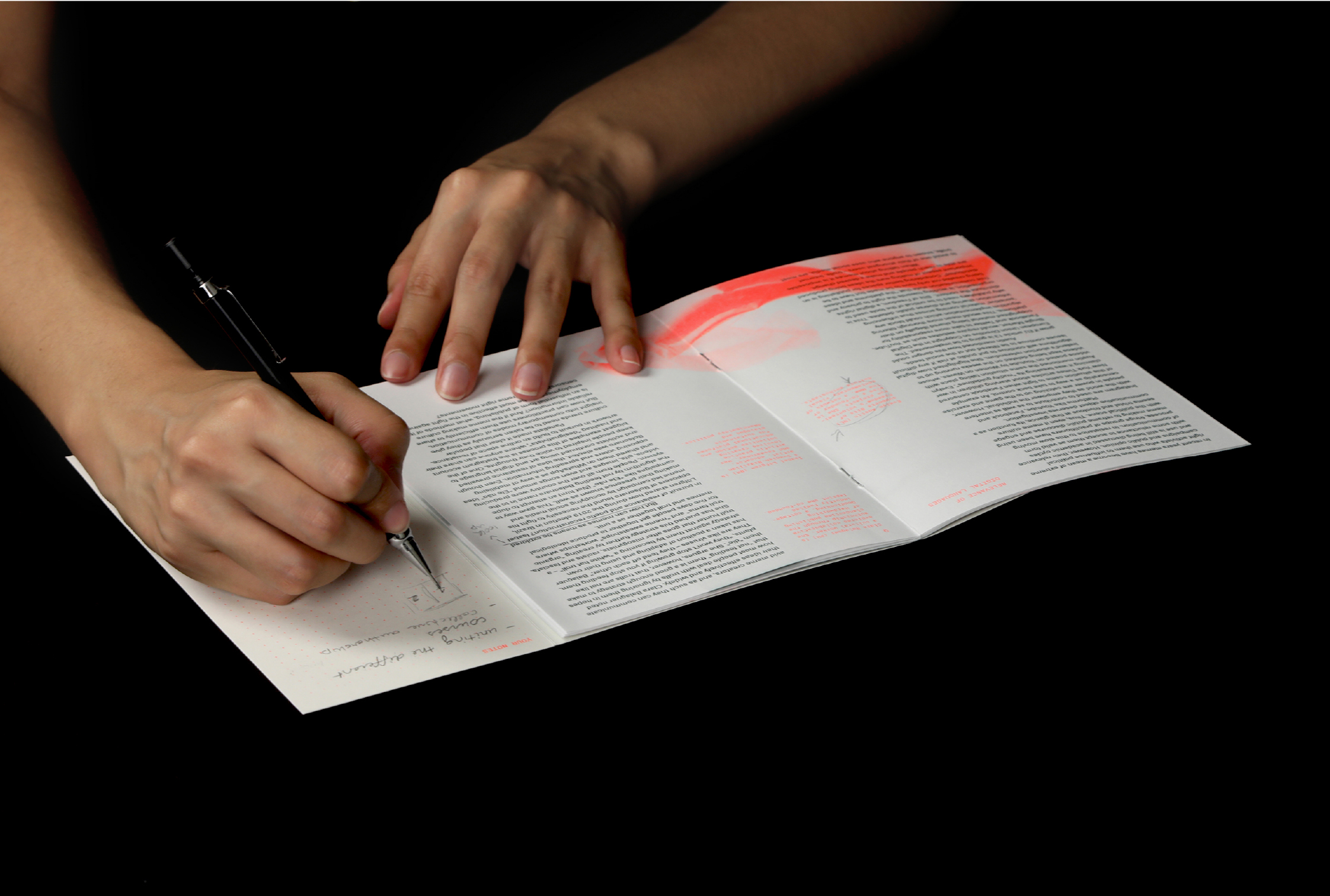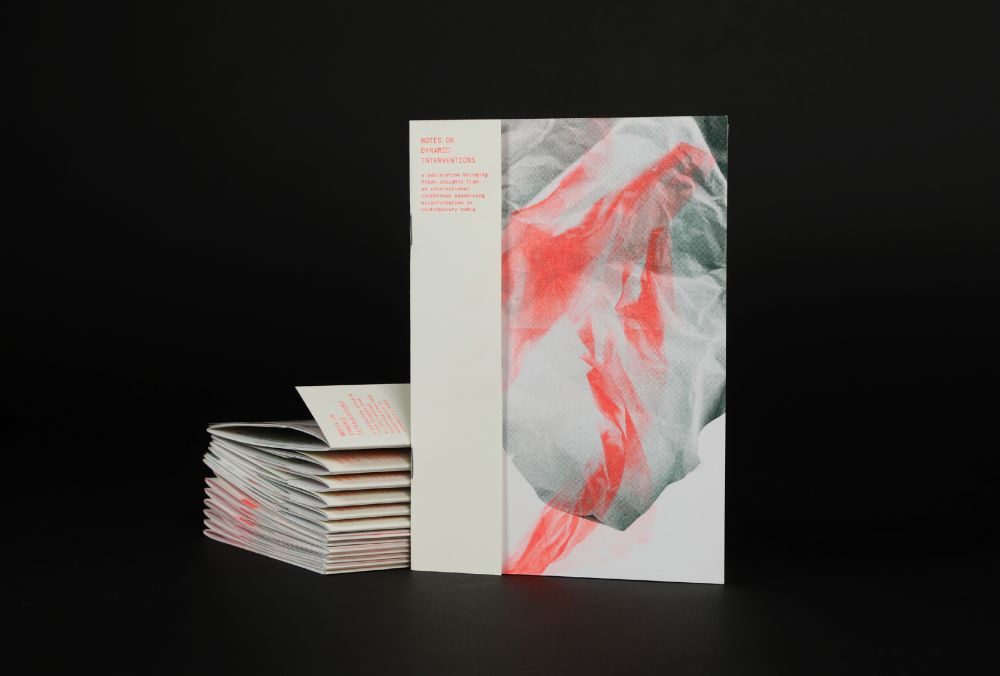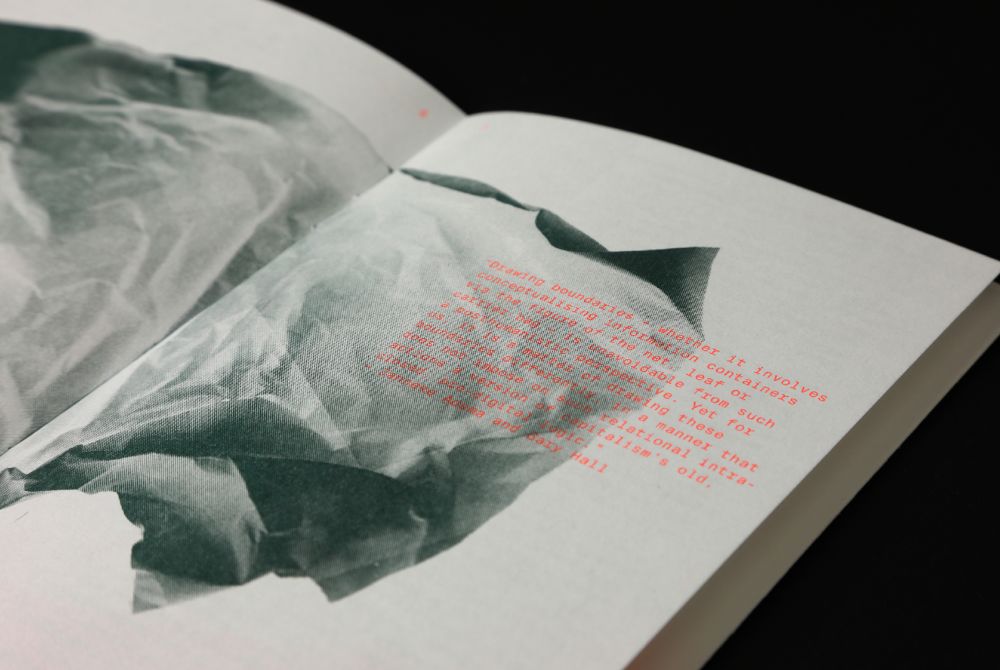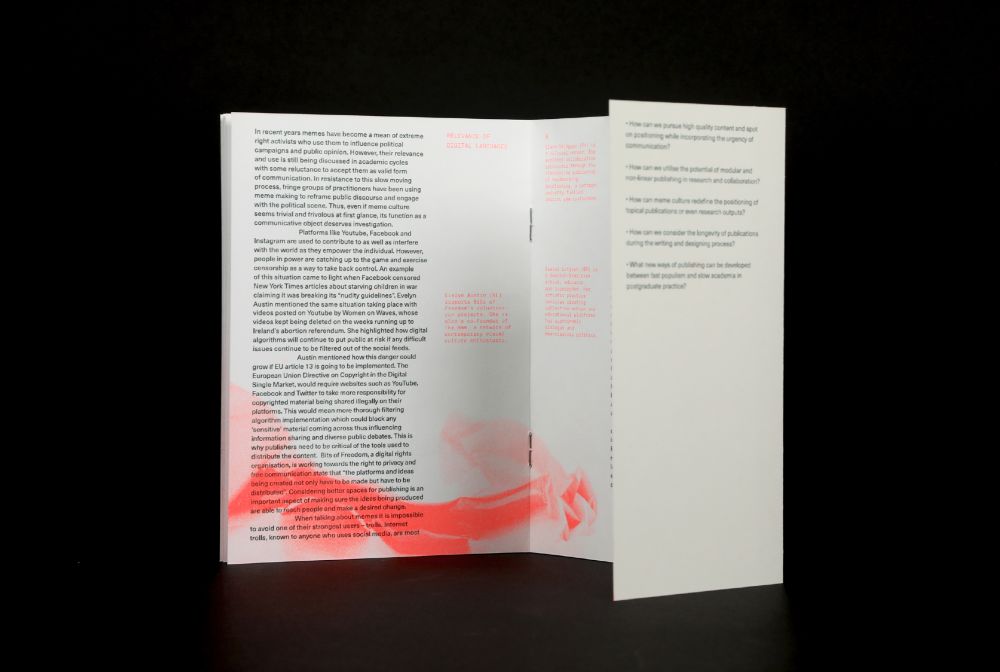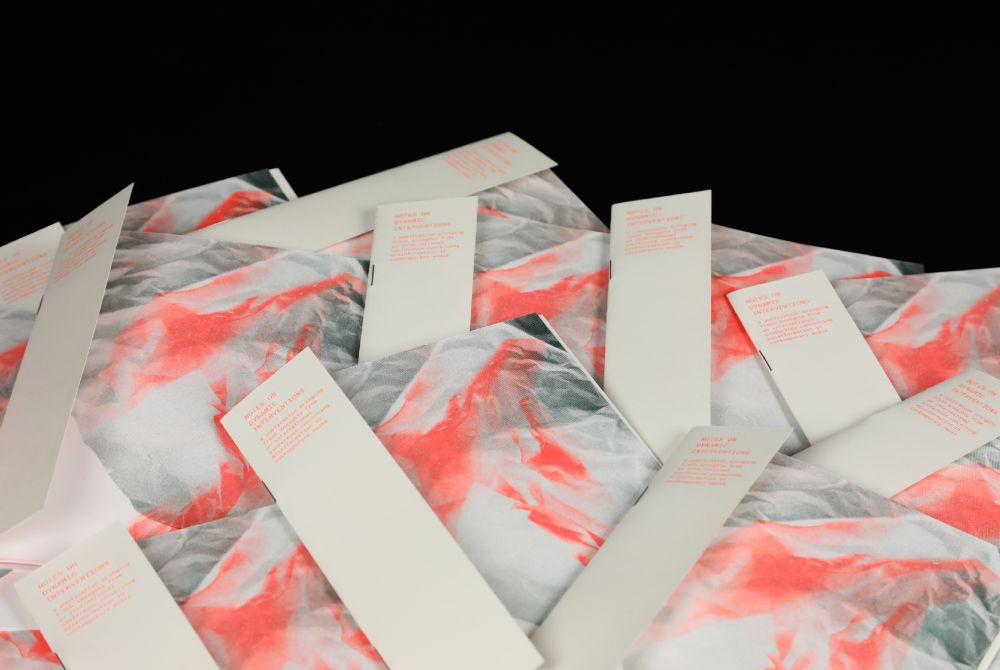Notes on Dynamic interventions is a publication reflecting on the Urgent Publishing Conference 2019, written and designed by Laura Dirzyte and Bruna Osthoff on the MA Graphic Media Design Course at London College of Communication.
The conference visit and publication production was funded by the LCC Graduate School Fund, a fund that encourages all postgraduate students at the College to develop their own ideas for exhibitions, events, and activities that bring together the postgraduate community.

It is no longer shocking to claim that digital technologies have great influence over people’s communication and habits of sharing information today. World Wide Web allows fast browsing through collected knowledge online and quick access to what is happening that very instant around the world. However, the spread and quantity of information reaching audiences now feels overwhelming instead of exciting. Multiple sources and large amounts of information have affected the way people read, thus, also the way content is written and published. We witness haste in delivery, especially of news, and the means of attracting attention are getting extreme in the digital space. So we find ourselves defining the context we live in as post-truth, where breaking news often seem like broken news.
Drawn to investigate this complex landscape of contemporary communication we attended Urgent Publishing conference held in the Netherlands on the 15–17th May. The key question driving all conference discussions was: how can we as designers, writers, artists, developers and publishers intervene in the public debate and counter misinformation in a relevant manner?
The publication
A number of speakers, discussing publishing formats in current post-digital times, emphasised the importance of public integration through practice. NXS, a collaborative research project, has worked with the concept that “publishing is not only about making public but about making a public”. By inviting interaction that feeds directly into the the subject and content of their issues they are able to always be in touch with what is urgent for the community they are building. However, researcher Padmini Ray Murray critiqued how platforms like Google under the guise of “protection” has been asking art institutions from various countries for permission to photograph and archive their artworks. The images are then displayed in Google Arts & Culture website, but Murray questioned how digitisation of artifacts and removal of cultural context might affect the way history is going to be read by future generations. She urged the audience to think of archiving as activism, putting more thought and care into survival of works and how they are represented after being released into the world.
Panelists also made it clear that popular culture trends need to be taken seriously as they give insight into contemporary modes of communication. While academia is still discussing the relevance of meme culture, Clara Balaguer has taken the frontlines and decided to participate in ideological internet wars. She has taken on the identity of an internet troll in order to fight trolls with extreme right wing views, who according to her are relentlessly spreading misinformation. Balaguer noted how most people deal with trolls by ignoring them in hopes that “not feeding” them is a good enough strategy to make them "die".
She argues, however, that trolls are not like plants: "they won’t stop growing if you stop feeding them – they are like viruses, they feed on each other and make a community of off each other”.
These ideas explored at the conference tapped not only into our personal research but also touched a number of projects we see our peers investigating at the London College of Communication. So we felt it was important to bring this international conversation back to the postgraduates of UAL. How to write as well as design for urgency without succumbing to an accelerated hype cycle in our respective disciplines and personal practice? We summarised key ideas from the talks and designed a publication where readers have space to add their reflections.
Round table event
To hear the response from students we are organising a round table discussion on Friday 18 October 2019 at 11am in Room D209 Design Block, at London College of Communication. Postgraduates from different design and communication courses at UAL are welcomed to exchange ideas from their undergoing research.
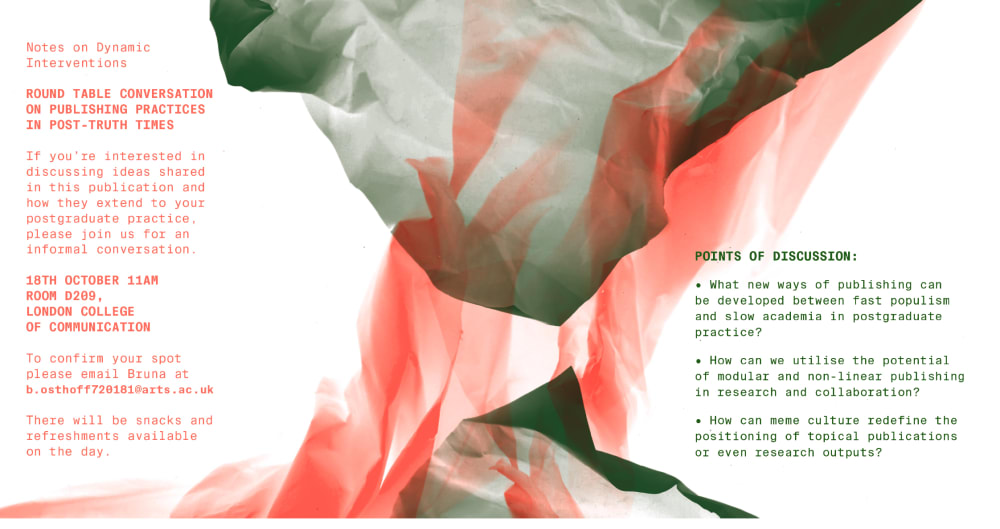
If you would like to get a copy of the publication and/or participate in the conversation, please get in touch with Laura l.dirzyte0720181@arts.ac.uk or Bruna b.osthoff0720181@arts.ac.uk.
